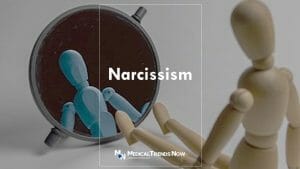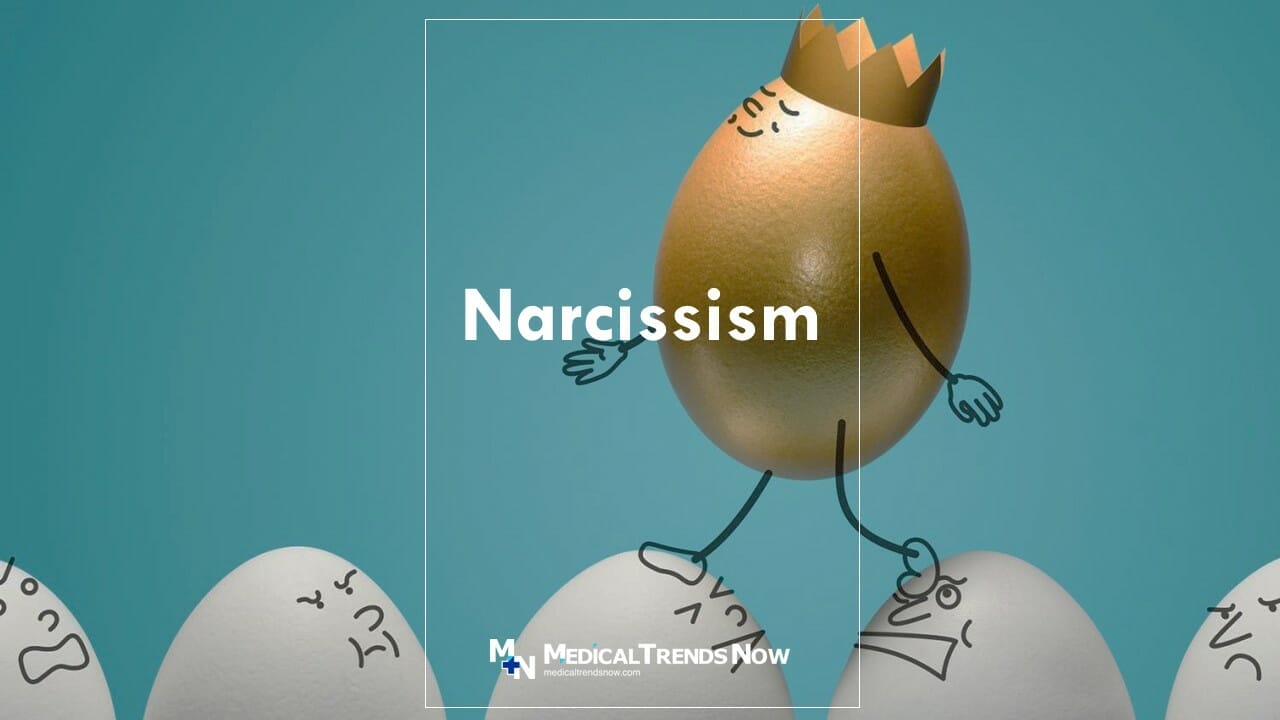Table of Contents
Narcissism is a personality disorder that is characterized by an inflated sense of self-importance, a need for attention and admiration, and a lack of empathy for others. It can be difficult to deal with narcissistic behavior in yourself or others because it can be manipulative and make you feel like you are not good enough. However, there are some ways to recognize and deal with narcissistic behavior.
What Is Narcissism?
Narcissism is a mental disorder characterized by a deep need for admiration and respect, coupled with fragile self-esteem. People with narcissism often have a strong sense of entitlement and feel they are superior to others.
Narcissistic behavior is characterized by an inflated sense of self-importance, a need for admiration, and a lack of empathy. If you suspect that you or someone you know may be displaying narcissistic tendencies, there are some key things to look for.
Relationships, employment, education, and money matters are just a few of the areas of life where a narcissistic behavior disorder can cause issues. When they don’t receive the particular treatment or adoration they feel they deserve, people with a narcissistic personality disorder may generally feel dissatisfied and disappointed. Others might not enjoy being around them, and they could find their interactions to be unsatisfying.

The Different Types of Narcissistic Behavior
Narcissism is a mental disorder characterized by an excessive focus on one’s own self-interest, often to the exclusion of others. There are some common types of Narcissism:
- Grandiose narcissism – This type involves a strong sense of self-importance and a belief that they are superior to others. They may also feel entitled to special treatment and disregard the feelings of others.
- Vain narcissism – This type occurs when people have an excessive focus on their looks and feel especially proud when their looks improve. People with this type of narcissism often believe that they are unique and special and are not willing to accept criticism or compliments gracefully.
- Narcissistic entitlement – This refers to a belief that one is entitled to special treatment, unlimited amounts of love and admiration, and exclusive access to resources. People with this type of narcissism often have a difficult time accepting criticism or being rejected.
- Self-defeating narcissism – This is characterized by a lack of self-confidence, low self-esteem, and a tendency to blame others for their problems. People with this type of narcissism often refuse to take responsibility for their own actions and rely on others to make them feel valued.
- Entitlement inflation – This occurs when people become overly obsessed with their accomplishments, assets, or status. People with this type of narcissism often believe that they are better than everyone else and are not content with what they have.
- Exploitational narcissism – This is a type of narcissism that occurs when people use others for their own gain without regard for the feelings of the person being exploited. People with this type of narcissism often view others as tools that can be used to achieve their own goals.
- Grandiose narcissism – This type is characterized by an excessive sense of self-importance, a belief that one is superior to others, and a need to be admired by others. People with grandiose narcissism often have unrealistic expectations about their abilities and look down on others because they feel above them.
- Vulnerable narcissism – This type is characterized by a feeling of insecurity, low self-esteem, and a need for constant validation from others. People with vulnerable narcissism often lack self-confidence and are hypersensitive to criticism.

Categories of Narcissistic Behavior
Narcissism is a personality disorder that is characterized by an inflated sense of self-importance, a need for admiration, and a lack of empathy. Narcissistic behavior can take many different forms, but all of them involve a distorted sense of self and a preoccupation with power, success, and beauty.
1) Narcissism as a personality trait:
This is the most common type of narcissism and is usually considered positive. It’s characterized by a high level of self-confidence, a need for admiration, and a lack of empathy for others.
2) Narcissism as a disorder:
This type of narcissism is considered to be a mental disorder and can be harmful to both the person who has it and to those around them. Signs of this type of narcissism include a strong need for attention, a lack of empathy for others, and a need for superiority over others.
3) Narcissism as an addiction:
This type of narcissism can also be considered an addiction. People with this type of narcissism may find it difficult to let go of their need for admiration and acceptance. They may also be unable to tolerate criticism or feel empathy for others.

What Are The Possible Symptoms of Being A Narcissist?
Narcissism has become a popular topic of discussion in recent years. Many people wonder if they or someone they know may be a narcissist. Narcissism is a personality disorder that is characterized by an inflated sense of self-importance, a need for excessive admiration, and a lack of empathy for others. Narcissists are often described as selfish, arrogant, and lacking in empathy.
There are many different possible symptoms of being a narcissist.
- Often have a grandiose sense of self-worth.
- They are very self-centered and neglectful of others.
- Often have a need for admiration and affirmation from others.
- They can be very manipulative and are often able to get what they want by using their charm or manipulation skills.
- They can be very egotistical and believe that they are superior to everyone else.
- Can be very insensitive to the feelings and needs of others.
- They can be very arrogant and believe that they are entitled to everything they want.
- They can be very intolerant of criticism and often react defensively when someone disagrees with them.
- May also have a history of mental or emotional problems, such as depression, ADHD, or anxiety.
- When they don’t get particular treatment, they become irritable or irritated.
- Have serious interpersonal issues and are quickly offended
- React with fury or contempt and attempt to minimize the other person in order to project a superiority complex
- Have trouble controlling their emotions and actions
- Encounter significant difficulties managing stress and adjusting to change
- Feel down and irritable because they aren’t ideal.
- Have repressed feelings of vulnerability, insecurity, embarrassment, or humiliation

What Are The Possible Causes of Narcissism in Childhood?
Narcissistic behavior disorder’s root causes are probably complicated, just like personality development and other mental health diseases. However, some possible causes can vary from person to person. Some possible reasons include the following:
- Having a highly dysfunctional family life.
- Experiencing or witnessing physical or emotional abuse.
- Having a parent who is narcissistic or Machiavellian.
- Living in a culture that glorifies self-promotion and self-aggrandizement.
- Having low self-esteem or feeling that you don’t measure up to others’ expectations.
- Having difficulties interacting socially or dealing with peer pressure.
- experiencing developmental trauma, such as being abandoned, abused, or neglected by caregivers during infancy and/or childhood.
- Having a mental illness, such as borderline personality disorder, ADHD, or major depressive disorder.

The Effects of Narcissism on People
Narcissism can be a very destructive trait. It can cause people to feel self-centered and excessively proud of themselves. This can lead to problems in personal relationships, as well as the following:
1) Narcissistic behavior can have a negative effect on self-esteem.
2) Narcissism can lead to the development of other mental disorders, such as anxiety, depression, and schizophrenia.
3) Narcissism can have a negative impact on relationships. People with this type of personality often find it difficult to get along with others and may be very demanding. They may also be prone to cheating or being abusive.
4) Narcissism can have a negative impact on career opportunities. People with this type of personality are often unable to manage their own careers and may be very unproductive.
5) Narcissism can lead to financial problems. People with this type of personality are often very reckless with money and may end up losing a lot of it.
6) Narcissistic behavior can have a negative impact on one’s physical health. People with this type of personality are often very inactive and may not get enough exercise. This can lead to obesity or other health problems.

How To Treat Narcissism
Talk therapy, or Psychotherapy, is used to treat narcissistic behavior or narcissistic personality disorder. If you also have other mental health issues, your treatment plan can also include medication.
How Does Psychotherapy Help Narcissists?
Talk therapy or Psychotherapy may be helpful in the following ways:
- Improve interpersonal communication skills to have more fulfilling, close relationships.
- Recognize the feelings that lead them to compete, distrust others, and maybe hate both themselves and other people.
- Accept and uphold genuine interpersonal connections with coworkers and teamwork.
- Accept your actual competence and potential in order to accept feedback or failure.
- Improve your capacity to comprehend and control your emotions.
- Recognize the effects of troubles on your self-esteem and learn to live with them.
- Gain an acceptance of what is possible and what you can achieve by letting go of your desire for unreachable goals and ideal circumstances.

How To Recognize And Deal With Narcissistic Behavior In Yourself And Others
If you think you may be exhibiting narcissistic behavior, there are some things to keep in mind.
First, narcissism is usually accompanied by other personality traits such as egocentrism and inflexibility. It’s important to be honest with yourself about your tendencies so that you can begin to address them head-on. If you’re concerned that someone you know may be suffering from Narcissistic Personality Disorder, it’s important to seek professional help. There are many treatment options available, and the right one will depend on the individual’s symptoms and history.

Tips For Recovery From Narcissistic Behavior
You can be defensive or believe that the treatment is unnecessary. You can believe that therapy is not worthwhile and be inclined to stop because of the nature of a narcissistic behavior disorder. However, it’s crucial to:
- Be open-minded. Consider the advantages of treatment.
- Adhere to your treatment schedule. Attend treatment sessions as scheduled and take any prescribed drugs as instructed.
- Remember that it can be challenging and that setbacks occasionally are possible.
- Get help if you’re abusing alcohol or drugs, or have other mental health issues. Your addictions, sadness, worry, and stress can all feed off one another, creating an unhealthy cycle of behavior.
- Keep your eyes on the prize. Remind yourself that you may attempt to mend broken relationships and increase your level of happiness in life while keeping your goals in mind.

Conclusion: Narcissistic Behavior
Narcissistic behavior is a difficult disorder to treat, but with the right resources and commitment, you can overcome it. Remember that therapy is an important step in the recovery process, but don’t be discouraged if it doesn’t work the first time. With determination and support from friends and loved ones, you can create a life free from narcissism.
Resources: Narcissistic Behavior
- Narcissistic personality disorder – Symptoms and causes – Mayo Clinic
- Narcissistic Personality Disorder – HelpGuide
- Narcissistic Personality Disorder (NPD) – Psycom.net
- Narcissistic Personality Disorder: Traits, Tests, Treatment – Cleveland Clinic
- Origins of narcissism in children – PNAS
- Narcissism as a consequence of trauma and early experiences – ESTD
- Causes of Narcissistic Personality Disorder – Psych Central
- Effects of Self-Concept on Narcissism: Mediational Role of Perceived Parenting – Frontiers in Psychology
- The Effect of Pathological Narcissism on Interpersonal and Affective Processes in Social Interactions – NCBI
- Living with pathological narcissism: a qualitative study – BioMed Central
- The Effect of Social Media Use on Narcissistic Behavior – Tiffany A. Somerville, McKendree University
- What Is a Narcissist? Definition, 9 Traits, Symptoms, Treatment – EMedicine Health
- 9 Major Warning Signs You’re Dealing With a Narcissist – Prevention
Disclaimer
This website is intended to educate both members of the general public and those working in the medical field on the prevalence, causes, and methods for preventing, diagnosing, and treating diseases that affect people throughout their lives. This website’s content is provided solely for informational reasons and is not meant to serve as a substitute for the advice of a qualified medical practitioner.













